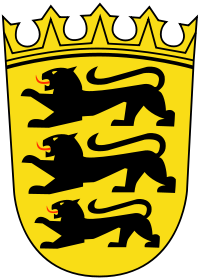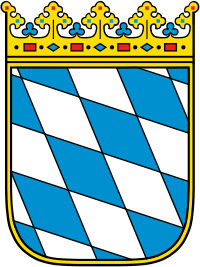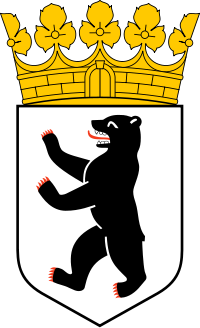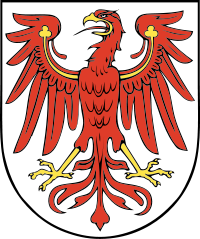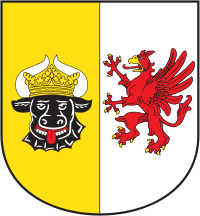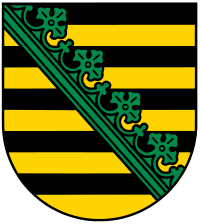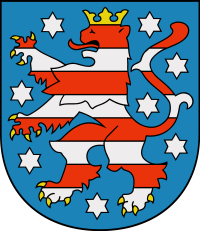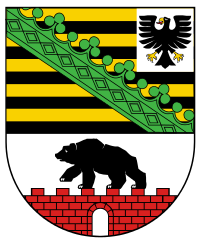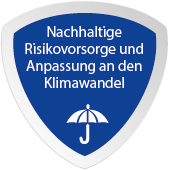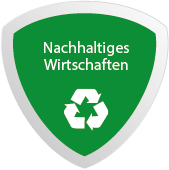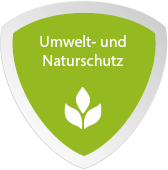Die nachfolgenden Inhalte stammen aus dem Kooperationsprogramm "Interreg CENTRAL EUROPE" (genehmigt am: 16.12.2014).
Kurzbeschreibung
Actions to improve integrated environmental management capacities for the protection and sustainable use of natural heritage and resources will be supported.
Förderziel
All the supported actions will clearly contribute to improving integrated environmental management capacities and to fostering the protection and sustainable use of natural heritage and resources in central Europe. The supported actions shall increase capacities of the public sector and related entities to preserve, manage and use natural heritage and resources (including water, soil, fauna and flora). Furthermore, the focus on integrated environmental management approaches and strategies shall contribute to reducing current and avoiding future usage conflicts as well as to ecological restoration of degraded ecosystems (e.g. river basin management, air quality etc.).
Fördergegenstände
Demonstrations-, Modell- und Pilotvorhaben, Management, Verwaltung, Strategieentwicklung, Konzept-, Teilkonzepterstellung, Vernetzung, Kooperation, Wissenstransfer
Zuwendungsempfänger
Among others:
- Local, regional and national public authorities.
- Regional development agencies.
- Enterprises (in particular SMEs within the cultural and creative industry as well as the environmental sector).
- Associations.
- Regional innovation agencies.
- Special interest groups.
- NGOs.
- Financing institutions.
- Education and training organisations as well as universities and research institutes.
Förderfähige Gebietskulisse
Förderfähig sind die Bundesländer: Baden-Württemberg, Bayern, Berlin, Brandenburg, Mecklenburg-Vorpommern, Sachsen, Sachsen-Anhalt, Thüringen.
In Baden-Württemberg: Stuttgart, Karlsruhe, Freiburg, Tübingen.
In Bayern: Oberbayern, Niederbayern, Oberpfalz, Oberfranken, Mittelfranken, Unterfranken, Schwaben.
In Sachsen: Dresden, Chemnitz, Leipzig.
Kooperationsmöglichkeiten bestehen mit folgenden Staaten: Österreich, Tschechien, Ungarn, Italien, Polen, Slowenien, Slowakei.
Achtung: Bitte Prüfen Sie im Kooperationsprogramm (CP, KP) welche Teilräume der Staaten förderfähig sind.
Art der Unterstützung
Non-repayable grants
Beschreibung
Resource efficiency is a key aspect to be considered as a guiding principle. In order to facilitate its application, both in the public and private sectors, innovative tools and technologies shall be developed and tested. Joint and harmonised tools and concepts will be applied for risk prevention and management (considering natural risks and risks linked to human activities) responding also to challenges of negative climate change impacts in order to allow for effective and coherent solutions.
Examples of actions supported are:
- Developing and implementing integrated strategies and tools for the sustainable management of protected or environmentally highly valuable areas (e.g. biodiversity, landscapes, eco-systems, etc.).
- Developing and implementing integrated strategies and tools to sustainably use natural resources for regional development, thus avoiding potential use conflicts (e.g. with tourism, transport, industry, agriculture, energy, etc.).
- Developing and testing the application of innovative technologies and tools that facilitate effective integrated environmental management (e.g. remediation technologies, monitoring tools etc.).
- Developing and testing applications to improve the efficient management of natural resources in public institutions and enterprises (e.g. reduction of natural resource consumption, closed loop systems).
- Harmonising environmental management concepts and tools on the transnational level for risk prevention and management (e.g. flood risk management plans) and to reduce negative climate change impacts on the environment and human life (e.g. adaptation measures).
Within the supported actions different types of outputs can be obtained. Emphasis is put on policy learning and/or implementation-oriented approaches at transnational level. These can include the development and implementation of strategies and action plans, the development, testing and implementation of tools, the preparation of investments and leverage of funds, the implementation of pilot actions - including pilot investments - as well as capacity building also through training.
Hinweis: Weitere förderrelevante Informationen zur Maßnahme finden Sie im Kooperationsprogramm (CP, KP) S. 52-56.
Zielgruppe
They include both the public and private sector, such as policy makers and planners and organisations dealing with the protection, management and valorisation of natural and/or cultural heritage and resources as well as owners and users of natural and/or cultural heritage sites. Target groups include all population groups which are benefitting from the improved management of natural heritage and resources.
Zentrale Zuwendungsvoraussetzungen
Applications focussing on purely academic cooperation or basic research as well as on a mere exchange of knowledge and networking will not be funded.
All operations receiving funds have to meet the following horizontal quality requirements:
- Transnational and territorial relevance.
- Partnership relevance.
- Concrete and measurable results.
- Durable outputs and results.
- Coherent approach.
- Sound project communication strategy.
- Effective management.
- Sound budget.
Wichtige weitere Informationen zu Zuwendungsvoraussetzungen, wie z. B. die Mindestanzahl an Projektpartnern, finden Sie in den zugehörigen Unterlagen und im Kooperationsprogramm (CP, KP), S. 98-100.
Auswahlverfahren
The selection of operations will be carried out in application of Article 12 of the European Territorial Cooperation (ETC) Regulation following a standardised assessment procedure.
Projektauswahlkriterien
Detailed quality assessment criteria will be laid down and made available to applicants in call-specific documents. The assessment will be conducted by qualified assessors with the required expertise.
Informationen zu den Auswahlkritierien und der Vorgehensweise bei der Projektauswahl finden Sie im Kooperationsprogramm (CP, KP), S. 27-28 sowie auf der Webseite des Programms.
Laufzeit
Start der Maßnahme: 01.01.2014
Ende der Maßnahme: 31.12.2023
Sonstiges
As a basic principle, the Interreg CENTRAL EUROPE Programme will mainly support cooperation activities between lead partners (LPs) and project partners (PPs) located in the eligible areas of the MSs (territory or parts of the territory of the nine CENTRAL EUROPE Member States Austria, Croatia, Czech Republic, Germany, Hungary, Italy, Poland, Slovakia and Slovenia). An exception to the rule with regard to the location of partners is the case of those national public authorities/bodies which are competent in their scope of action for certain parts of the eligible area but which are located outside of it (e.g. ministries). German and Italian institutions falling under this definition are to all effects assimilated, both in terms of rights and obligations, to partners located in the programme area.

